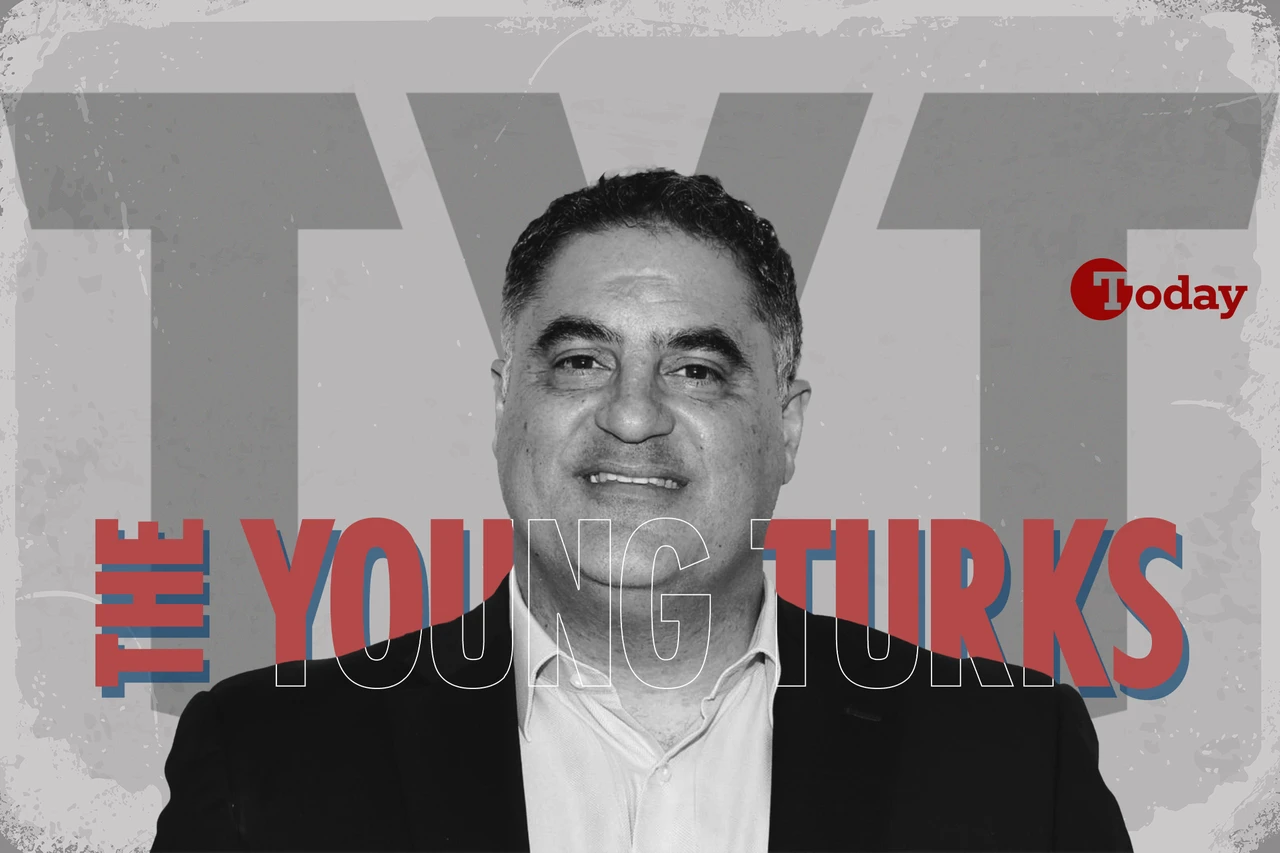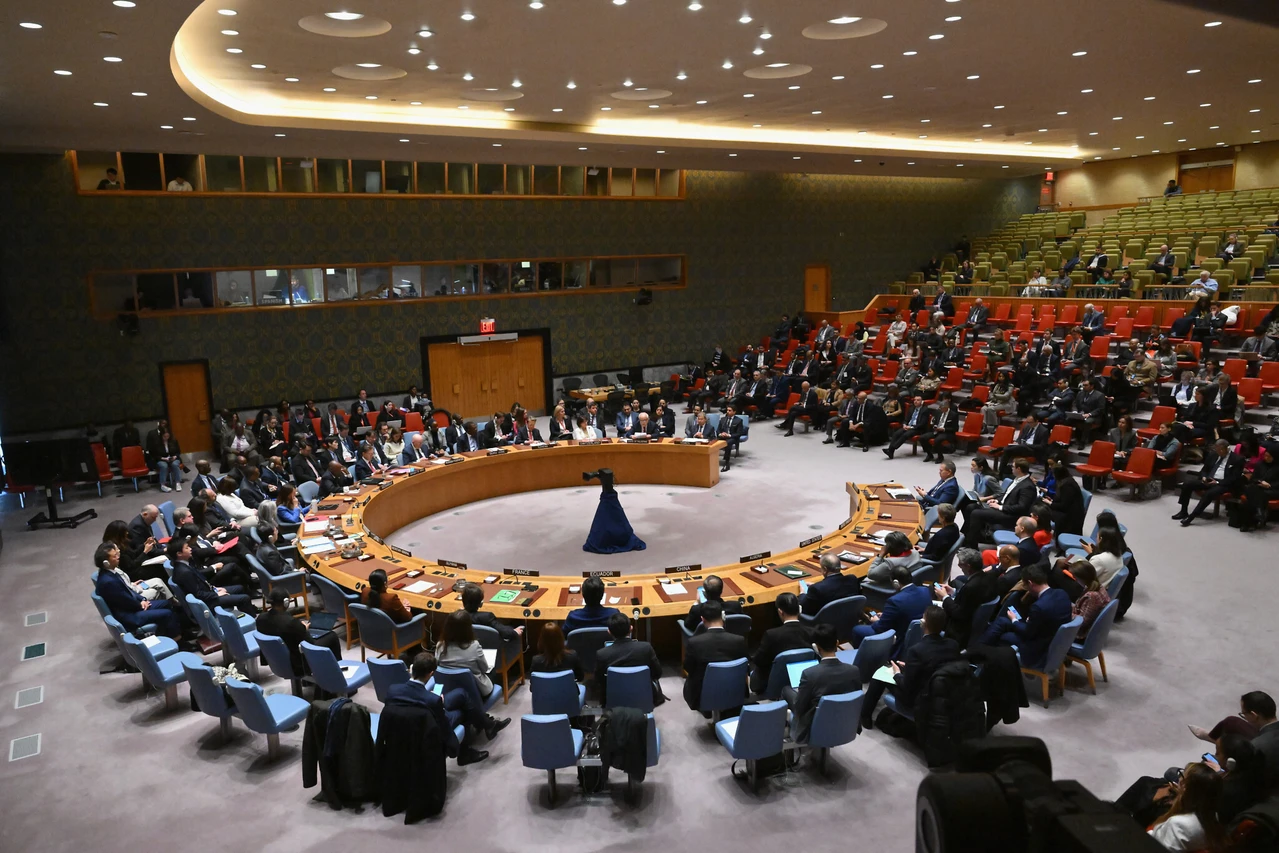Exclusive interview: Turkish-American media visionary Cenk Uygur on media evolution and Trump 2.0
 Cenk Uygur (prepared by Türkiye Today team)
Cenk Uygur (prepared by Türkiye Today team)
Cenk Uygur, founder of “The Young Turks,” a prominent online media platform, shared his insights on the transformation of media and what it means for public opinion, the challenges facing freedom of speech, and the influence of lobbying on U.S. politics.
With over 27 million subscribers and 29 billion views, the mastermind behind one of the biggest digital platforms in the U.S., Uygur, criticized the current political system for serving corporate and political elites.
In an exclusive interview with Türkiye Today, Uygur discussed the evolution of media, the current state of American democracy and the deep divides.
Born in Istanbul and raised in New Jersey, Uygur attributed his success to values instilled by his father, a farmer from Kilis turned mechanical engineer. He attended Wharton Business School and later Columbia Law School before pivoting from corporate law to become a radio talk show host—a decision that bewildered his family.
He said that back when no one else was doing the kind of thing he wanted to do, his family tried to stop him with a big ‘no way!’ – ‘Aman ha!’, but he also thinks that it was the Turkish values they taught him that ended up being the key to his success. Yet, Uygur’s success is not just about numbers.
Mainstream losing fight, and that’s good for democracy: Cenk Uygur
Reflecting on the rise of online media, Uygur noted, “When we started, people thought we were crazy to believe YouTube could become a dominant media platform. Now, online media is not only stronger than mainstream media, but it’s also making the establishment nervous.”
He elaborated on the role of traditional media in shaping public perception: “For decades, television, radio, and newspapers had monopolies on information. They avoided challenging narratives about corporate and government corruption because they needed access to those same politicians. Online media has changed that equation. We’re no longer dependent on gatekeepers.”
Uygur also highlighted the disconnect between traditional media and public interests. “Mainstream media tells you that your politicians are having honest debates. What they don’t tell you is that those debates are about which donor’s check they’re going to cash. Online platforms expose that reality, and it drives the establishment crazy.”
He believed this shift terrifies traditional media, which he accuses of propagating the interests of the elite: “Mainstream media told us our politicians aren’t crooks because they need access to those same politicians. In America, bribery is legalized under the guise of campaign contributions.”.
Uygur criticized both Democrats and Republicans for catering to corporate interests, leaving average Americans behind.
Influence of lobbying
Uygur criticized the role of money in U.S. politics, particularly its impact on foreign policy. “In America, bribery is legalized through campaign contributions. One family, the Adelsons, gave over $330 million to Donald Trump. Do you think that money doesn’t influence his decisions? The Democrats are no different—they take more corporate money than Republicans and act accordingly.”
He drew parallels between lobbying and corruption: “In Türkiye, we have an old word for this: ‘rusvet,’ meaning bribery. That’s exactly what’s happening here, but on a much larger scale. Both parties serve corporate and foreign interests over the needs of the American people.”
Freedom of speech under pressure—from both parties
Discussing recent initiatives to combat online “disinformation,” Uygur warns of the broader implications for free speech: “When government officials like Jen Psaki talk about changing laws to stop disinformation, they’re not targeting lies—they’re targeting truths that threaten the powerful. For example, discussing Palestinian rights or criticizing corporate greed is now framed as dangerous.”
He pointed out the bipartisan nature of these restrictions: “Both Republicans and Democrats want to silence dissent, especially when it comes to issues like universal healthcare, the minimum wage, or foreign policy. They use terms like ‘disinformation’ as a cover for suppressing voices that challenge their priorities.”
Uygur also connected these efforts to foreign policy, citing laws in several U.S. states that penalize criticism of Israel. “You can criticize the U.S. government or any government in the world, but if you criticize the Israeli government, they can take away your contracts or even arrest you on college campuses. That’s not freedom of speech—that’s authoritarianism,” he said, adding, “This suppression is most apparent when it comes to exposing systemic corruption or defending Palestinian human rights.”
He also lambasted laws penalizing criticism of Israel, calling them unconstitutional.
“When the criticism comes to the Israeli government, you lose your contracts or even face arrest. That’s not democracy—it’s legalized bribery,” he said. He also highlighted the hypocrisy of the U.S. government, which he claims enforces unconstitutional laws that punish criticism of Israel while turning a blind eye to violations of American citizens’ rights.

Aysenur Ezgi Eygi, Shireen Abu Akleh
Uygur commented on U.S. foreign policy’s prioritization of Israel, describing it as a longstanding bipartisan issue. “For my entire life, U.S. policy has been ‘Israel first.’ The Palestinians, Arabs and Muslims in America have almost no lobbying power compared to pro-Israel groups, which heavily fund both parties. This imbalance skews U.S. foreign policy and silences criticism.”
The CEO addressed the deaths of Americans like Aysenur Ezgi Eygi and Shireen Abu Akleh in Israeli operations: “When American citizens are killed by Israeli forces, the U.S. government does nothing. Biden didn’t attend their funerals or even acknowledge their deaths in a meaningful way. The U.S. government’s inaction in defending its citizens against Israel’s crimes is unacceptable. That shows where the priorities lie.”
“Shireen was one of the most celebrated journalists in the Middle East,” he maintained.
On broader international action, he advocated: “The world should stop buying Israeli products until the occupation ends. This isn’t about religion—it’s about holding a government accountable for its actions.”
Uygur also revealed threats he has faced for his outspoken criticism of Israel, including Israeli Defense Forces targeting him symbolically by putting his name on bombs.
“The dehumanization tactics used are chilling. They don’t just target Palestinians but anyone who dares to speak up,” he said.
Eyeing Pentagon throne
Uygur talked about systemic issues in the U.S., particularly the lack of universal healthcare and paid family leave.
“America is the richest country in the world, yet 68,000 people die every year because they can’t afford health insurance. Mothers have to return to work immediately after giving birth because there’s no paid leave. It’s a brutal system driven by corporate greed,” he said.
He connected these issues to defense spending: “The Pentagon fails its audits every year. They can’t account for $400 billion, but instead of addressing this, they funnel more money into defense contractors. This isn’t about national security—it’s about corruption.”
Regarding that, he publicly challenged Musk, who’s all about cutting the federal budget, saying, “Put me in charge of the Pentagon, and I’ll slash $400 billion off the budget overnight. Put me in, coach, right?”
Uygur mentioned that Musk hit him back with a ‘What’s your suggestion?’ which, according to him, says a lot about Dems who accuse their enemies of not listening to everyone.”

Bipartisan internal dispute
Uygur pointed to a growing divide within the Democratic Party between corporate-backed politicians and populist leaders. He suggested figures like Bernie Sanders, union leaders, or even outsider Jon Stewart as potential saviors for the party, warning that sticking with “corporate robots“ like Kamala Harris or Gavin Newsom would guarantee continued losses.
Addressing Donald Trump’s recent cabinet appointments, Uygur identified a divide within the Republican Party: “There’s a tug-of-war between isolationist populists and pro-establishment figures. Trump’s base demands ‘America first,’ but his cabinet appointments often reflect traditional donor-driven politics. How this plays out will determine the party’s trajectory.”
“Trump has surrounded himself with figures who prioritize Israel over America. But his base may not tolerate this. The right-wing voters wanted America First—no more wars, no more endless support for foreign governments. If Trump betrays them, it could mark a turning point in American politics,” he added.
Uygur speculated, also warning of the potential dangers of Trump’s appointments, describing them as loyalists to the Israeli agenda, which could further escalate conflicts in the Middle East.
Despite the grim realities, Uygur remained hopeful, pointing to the growing dissatisfaction among Americans with both political parties and the traditional media.
“We’re at a crossroads. If the people take back control, we could witness a new era of accountability, fairness, and real democracy. The next four years will be decisive,” he concluded.



